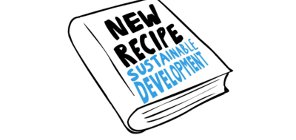More Remains to Be Done: Perspectives on the 16 Focus Areas of the OWG
Current patterns of socio-economic development are demonstrably leading to a world that is more socially unequal, ecologically fragile and economically vulnerable than ever before. In the long span of human history, there have never been as many people existing in extreme poverty, as broad a spectrum of species becoming extinct, as much of our natural resource base getting closer to exhaustion or as large a segment of our economies reeling under threats of instability and breakdown as there are today. The completion in 2015 of the MDG process, which addressed some of these issues, will have left many of these issues far from resolved.
Clearly, urgent changes are needed to reverse this rapid, headlong and seemingly inexorable rush towards planetary – or at least civilizational – self-destruction. To bring about deep transformations, these changes will have to be fundamental, dealing with root causes and not just the symptoms.
The SDG process to identify goals, targets and means of implementation to redress this situation, which was mandated by Rio+20 and undertaken over the past two years by the OWG has done an admirable job to define the major issues in the light of inputs from vast armies of stakeholders representing governments, international agencies, civil society, academia and business. The current draft goals have captured more cogently and successfully than any previous international exercise the great variety of concerns that the world’s diverse constituencies feel strongly about: basic human needs, social justice, economic equity, gender empowerment, environmental health – and many of the important components of sustainable development.
In short, the need for Universality (leaving no one behind, global applicability, etc) and for Systemic approaches and solutions (inter-goal synergies, scale hierarchies, policy coherence, metrics of genuine progress, etc) seem to be well covered, demonstrating the value of inputs from the enormous spectrum of stakeholders and the receptivity of the Co-chairs to such a range of ideas.
Yet, I believe, more remains to be done.
For the moment, four broad areas of transformative change could usefully be strengthened in the OWG Report: Sustainable Economies, Decoupling and Safe Operating Spaces, Inter-generational Equity, and Governance for a Sustainable Future (refer to table below). Of course, for cross-cutting issues such as these, many targets will fall into more than one goal and each goal will need to integrate different sectors. These items would need also to be supplemented with smart Targets and Means of Implementation during this process.
|
Transformative Changes |
Elements |
| Sustainable Economies | o Green jobs
o Lifecycle accounting Cradle to cradle o Full-cost accounting/pricing Internalizing ecosystem & social costs & benefits o Local value addition Local livelihoods Local resources Local economies |
| Decoupling & Safe Operating Spaces | o Sustainable consumption & productiono Efficiency & sufficiency
o Prioritizing critical resources Materials Soils & croplands Fossil fuels Biogeochemical cycles |
| Inter-generational Equity & Harmony with Nature |
o Conserving & nurturing 4 Capitals for all, now & in the future
o Desire for smaller families Empowerment of women through education, livelihoods & jobs Reproductive health services o Precautionary principle o Diversity for Resilience |
| Governance for a Sustainable Future | o Metrics of genuine progress beyond GDP
o Shifting tax burdens from labour to environmental resources o Reducing perverse subsidies o Providing incentives for conserving commons o Modifying intellectual property laws for the benefit of society |
Dr Ashok Khosla
Chairman, Development Alternatives
(Photo Credits: http://www.youthpolicy.org/blog/tag/millennium-development-goals-mdgs/)




Leave a Reply